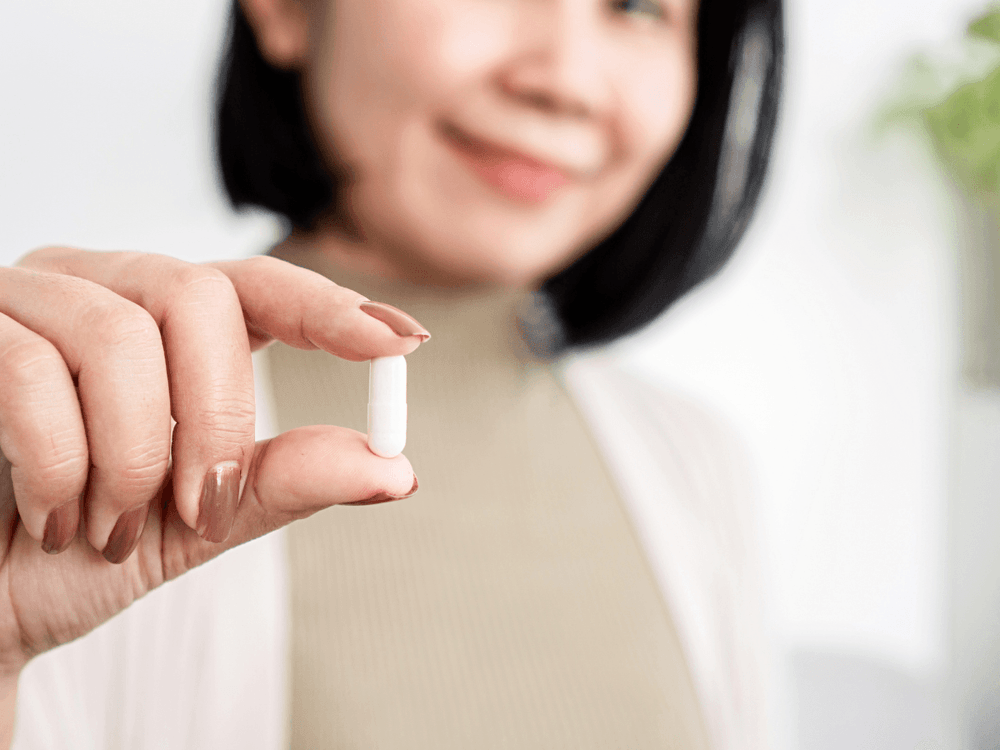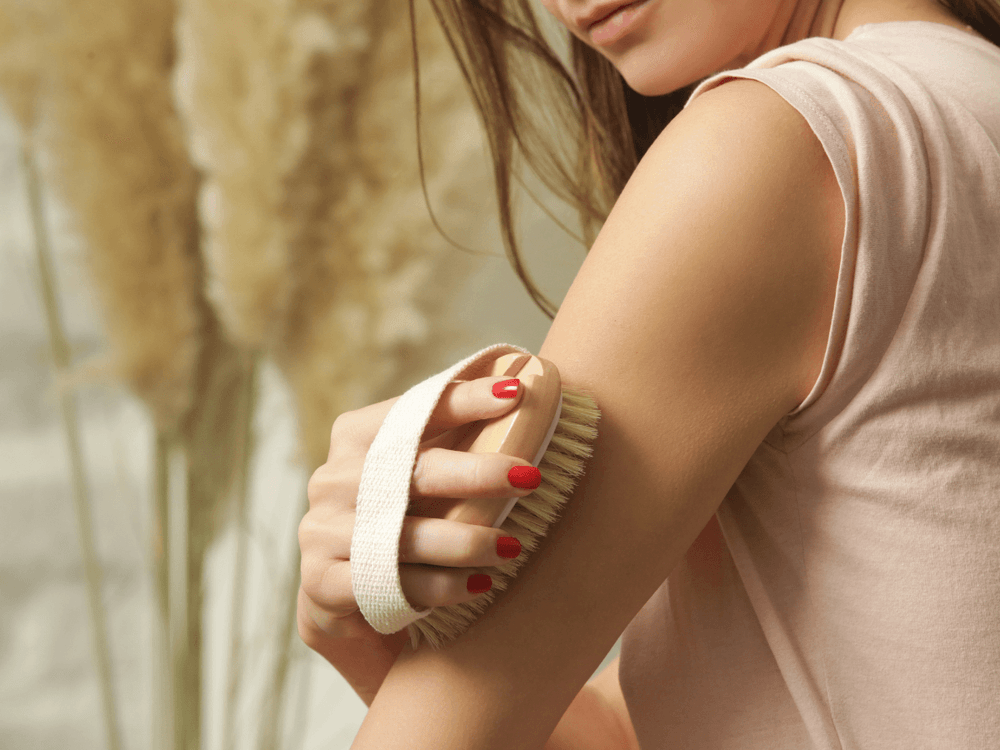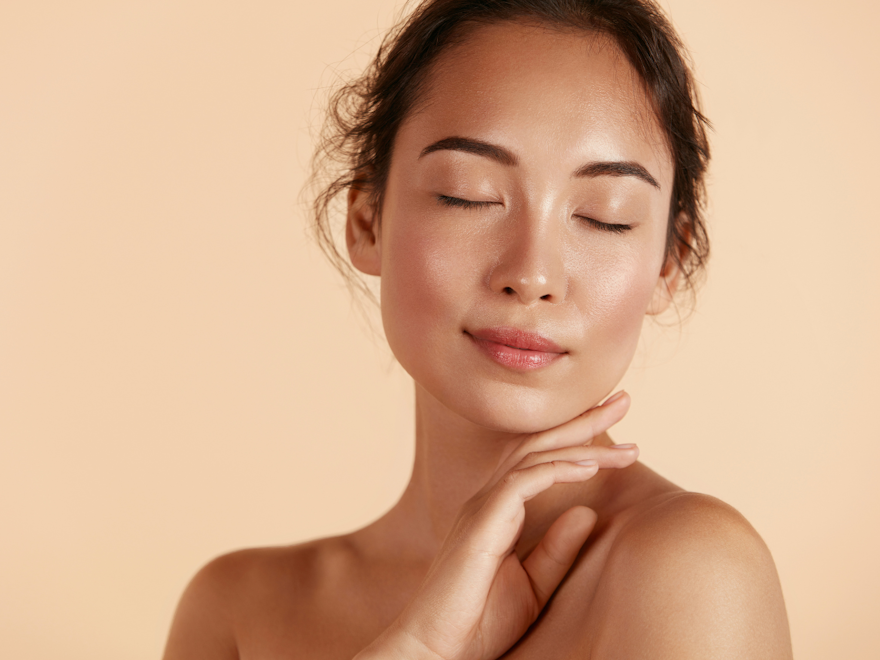La peau, le plus grand organe du corps humain, joue un rôle crucial dans notre santé globale. Elle agit comme une barrière protectrice contre les agents pathogènes, aide à réguler la température corporelle, et permet l’élimination des toxines par la transpiration. Il est donc essentiel de prendre soin de cet organe précieux.
Découvrez dans cet article les méthodes efficaces pour entretenir et améliorer la santé de votre peau naturellement.
La nutrition : La clé d'une peau éclatante
La nutrition joue un rôle fondamental dans la santé et l'apparence de la peau. Ce que nous mangeons influence directement la structure et la fonction de notre peau, en fournissant les nutriments essentiels nécessaires à sa régénération et à sa protection. Une alimentation riche en vitamines, minéraux et antioxydants aide à combattre les radicaux libres, des molécules instables qui peuvent provoquer des dommages cellulaires et accélérer le vieillissement cutané. La vitamine C est, par exemple, cruciale pour la production de collagène, une protéine qui maintient la peau ferme et élastique, tandis que les oméga-3 contribuent à maintenir l'hydratation et la souplesse de la peau. Adopter une alimentation équilibrée et riche en nutriments est donc fondamental pour une peau saine. Pour cela misez sur :
- Les Fruits et légumes : Riches en vitamines, minéraux et antioxydants, ils protègent et réparent la peau. Les baies, les agrumes, les épinards et les carottes riche en bêta-carotène sont particulièrement bénéfiques.
- Les Protéines maigres : Elles sont essentielles pour la réparation et la croissance des tissus. Incluez des sources de protéines comme le poisson, le poulet, les œufs et les légumineuses dans votre régime.
- Les Graines et noix : Sources de vitamine E, d’oméga-3 notamment, elles aident à maintenir la souplesse et l’hydratation de la peau.
- L'Hydratation : Buvez au moins 1,5 à 2 litres d'eau par jour pour maintenir l'hydratation de la peau et favoriser l'élimination des toxines. Les infusions de plantes comme la camomille, le thé vert ou le rooibos, riches en antioxydants, sont également bénéfiques.
- Le bouillon d'os : riche en acides aminés comme la glycine et la proline, essentiels pour la synthèse de collagène, le bouillon d'os favorisela réparation et la régénération des tissus cutanés.

Les gestes santé pour une peau protégée
En plus de l'alimentation, certains gestes et habitudes de vie sont essentiels pour prendre soin simplement de sa peau.
- Une hydratation externe optimale : Utilisez des crèmes hydratantes à base d'aloe vera, de beurre de karité ou d'huile de jojoba pour nourrir et protéger votre peau. Appliquez les après la douche pour une absorption optimale.
- Une protection solaire : Appliquez une crème solaire à large spectre avec un SPF d'au moins 30 chaque jour, même en hiver. La protection solaire prévient les dommages causés par les UV et le vieillissement prématuré. N'oubliez pas de réappliquer toutes les deux heures en cas d'exposition prolongée au soleil.
- Un sommeil suffisant : Un bon sommeil permet à votre peau de se régénérer. Visez 7 à 9 heures de sommeil par nuit. Adoptez une routine de sommeil régulière et créez un environnement propice à un repos réparateur.
- Une bonne gestion du stress : Le stress chronique peut affecter la santé de votre peau. Pratiquez des techniques de relaxation comme la méditation, le yoga ou la respiration profonde pour réduire le stress. Prenez le temps de vous détendre et de vous ressourcer régulièrement.
- Limiter le tabac et l'alcool: ceux ci ont des effets néfastes sur la peau, accélérant son vieillissement. Le tabagisme réduit le flux sanguin et prive la peau d'oxygène entraînant une perte d'élasticité et des rides prématurées. L'alcool, quant à lui, déshydrate la peau et peut provoquer une inflammation, augmentant les risques de conditions cutanées comme la rosacée.
Les compléments alimentaires pour une peau rayonnante
Une peau saine commence de l'intérieur. Si l'alimentation ne suffit pas à couvrir les besoins en nutriments essentiels, un recours aux compléments alimentaires peut être intéressant. Voici quelques compléments alimentaires reconnus pour leurs bienfaits sur la peau :
- Les Oméga-3 : les oméga-3 jouent un rôle crucial dans la santé de la peau. Ces acides gras essentiels hydratent la peau de l'intérieur, améliorant sa texture et sa souplesse. Ils possèdent également des propriétés anti-inflammatoires, aidant à réduire l'inflammation et les rougeurs, ce qui est particulièrement bénéfique pour les personnes souffrant de conditions cutanées inflammatoires comme l'eczéma et le psoriasis.
- La Vitamine E : La vitamine E est un puissant antioxydant qui protège la peau des dommages causés par les radicaux libres, ces molécules instables qui accélèrent le vieillissement cutané. Elle aide à prévenir les rides, les ridules et les taches brunes en neutralisant ces radicaux libres. En outre, la vitamine E favorise la réparation cellulaire et renforce la barrière cutanée, améliorant ainsi l'hydratation et la résistance de la peau.
- Le Collagène : Le collagène est une protéine structurante fondamentale pour la peau, contribuant à sa fermeté, son élasticité et sa résistance. Avec l'âge, la production de collagène diminue, ce qui peut entraîner des rides et un relâchement cutané. La supplémentation en collagène, sous forme de peptides ou d'hydrolysat, aide à stimuler la production naturelle de cette protéine et à renforcer la structure de la peau. Les études montrent que la prise régulière de collagène peut améliorer la texture, l'hydratation et la densité de la peau, réduisant ainsi les signes visibles du vieillissement.
- Le Zinc : Le zinc est un minéral essentiel pour la réparation des tissus et la régénération cellulaire. Il joue un rôle clé dans la cicatrisation des plaies et aide à contrôler l'inflammation, ce qui est particulièrement bénéfique pour les peaux sujettes à l'acné. Le zinc contribue également à réguler la production de sébum, réduisant ainsi les éruptions cutanées.
- La Vitamine C :elle est indispensable pour la production de collagène. En tant qu'antioxydant puissant, elle protège également la peau des dommages causés par les radicaux libres et les rayons UV, prévenant ainsi le vieillissement prématuré. La vitamine C éclaircit le teint, réduit les taches pigmentaires et améliore la texture générale de la peau.
Avant de commencer tout complément alimentaire, consultez un professionnel de la santé pour déterminer les dosages appropriés et éviter les interactions avec d'autres médicaments.

Les techniques naturelles supplémentaires
- Le gommage léger : Le gommage léger est une méthode efficace pour exfolier la peau et éliminer les cellules mortes. Utilisez des produits naturels comme le sucre, le sel de mer, ou des poudres d’amandes ou du marc de café mélangés à des huiles végétales pour un effet doux et hydratant. Appliquez le gommage sur une peau humide, massez en mouvements circulaires, puis rincez à l’eau tiède. Cette technique permet de révéler une peau lisse et éclatante sans l’agresser.
Le brossage à sec : cette technique consiste à brosser la peau sèche avec une brosse à poils naturels. Ce geste simple présente de nombreux avantages : il élimine les cellules mortes de la peau, révélant une peau plus douce et plus éclatante. Il améliore le flux sanguin et aide à nourrir les cellules de la peau. Enfin, il favorise le drainage lymphatique, ce qui aide à détoxifier le corps et réduire l'apparence de la cellulite. Pour pratiquer le brossage à sec, commencez par des mouvements doux et progressifs, en partant des extrémités (mains et pieds) vers le cœur. Réalisez ce rituel chaque matin avant la douche pour maximiser ses bienfaits.
Les bains de vapeur : Les bains de vapeur pour le visage ouvrent les pores et aident à éliminer les impuretés. Ajoutez des herbes comme la camomille ou la lavande à l'eau chaude pour un effet apaisant et purifiant.
Les masques à l’argile : L'argile est reconnue pour ses propriétés purifiantes et régénérantes. L'argile verte est idéale pour les peaux grasses et à tendance acnéique, car elle absorbe l'excès de sébum et les impuretés. L'argile blanche, plus douce, convient aux peaux sensibles et sèches. Pour préparer un masque, mélangez l’argile en poudre avec de l’eau ou de l’eau de rose jusqu’à obtenir une pâte lisse. Appliquez le masque sur le visage, laissez agir 10 à 15 minutes sans laisser sécher, puis rincez à l’eau tiède.
- Les huiles essentielles : Certaines huiles essentielles comme la lavande, l'arbre à thé et l'encens ou le géranium rosat ont des propriétés antibactériennes, anti-inflammatoires et réparatrices et anti-âge. Testez les au pli du coude avant une utilisation complète et diluez-les dans une huile de support comme l'huile de jojoba ou l'huile d'amande douce avant de les appliquer sur la peau.

Retrouvez tous les conseils naturels ainsi que les indications et précautions d'usage des plantes, huiles essentielles, compléments alimentaires et techniques naturelles directement sur natflow !

